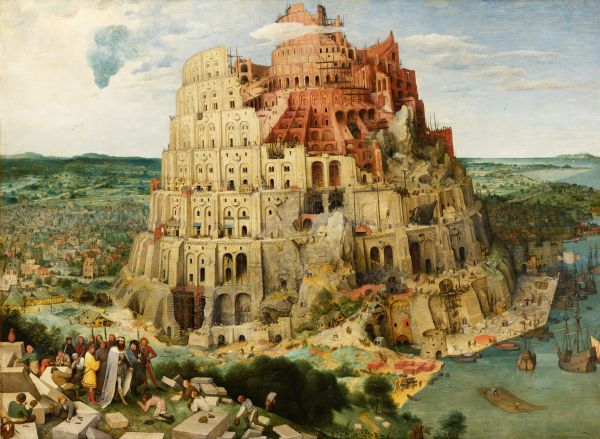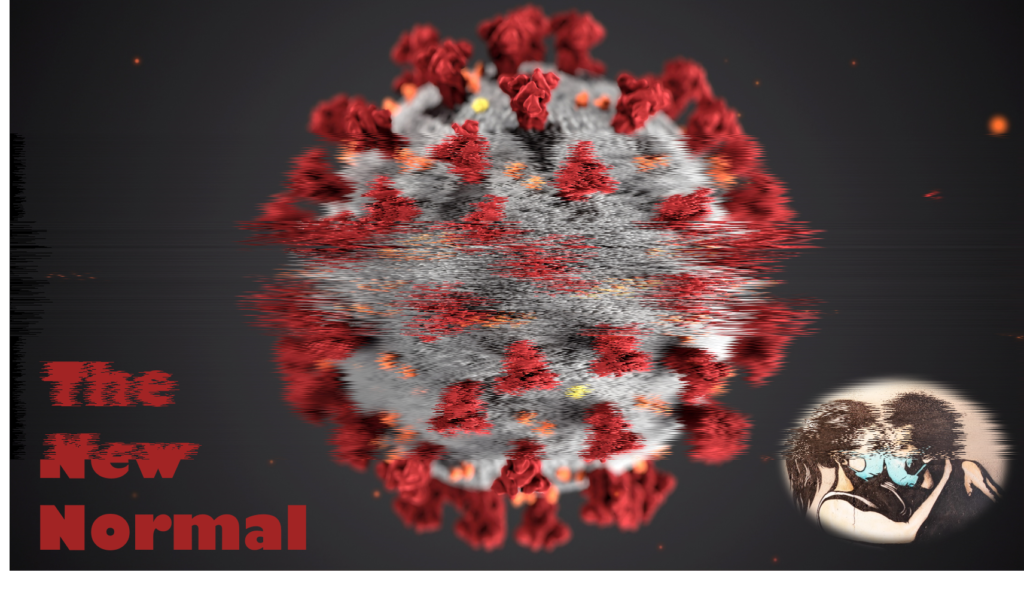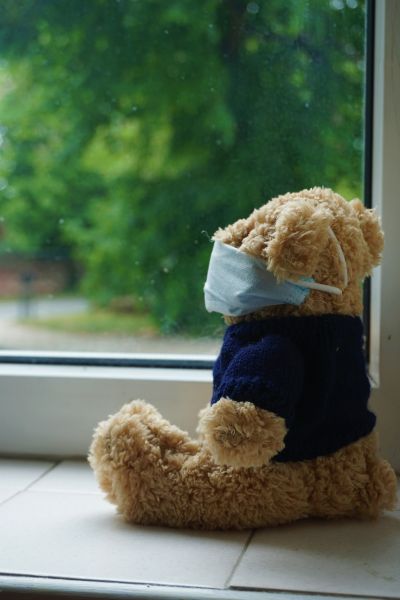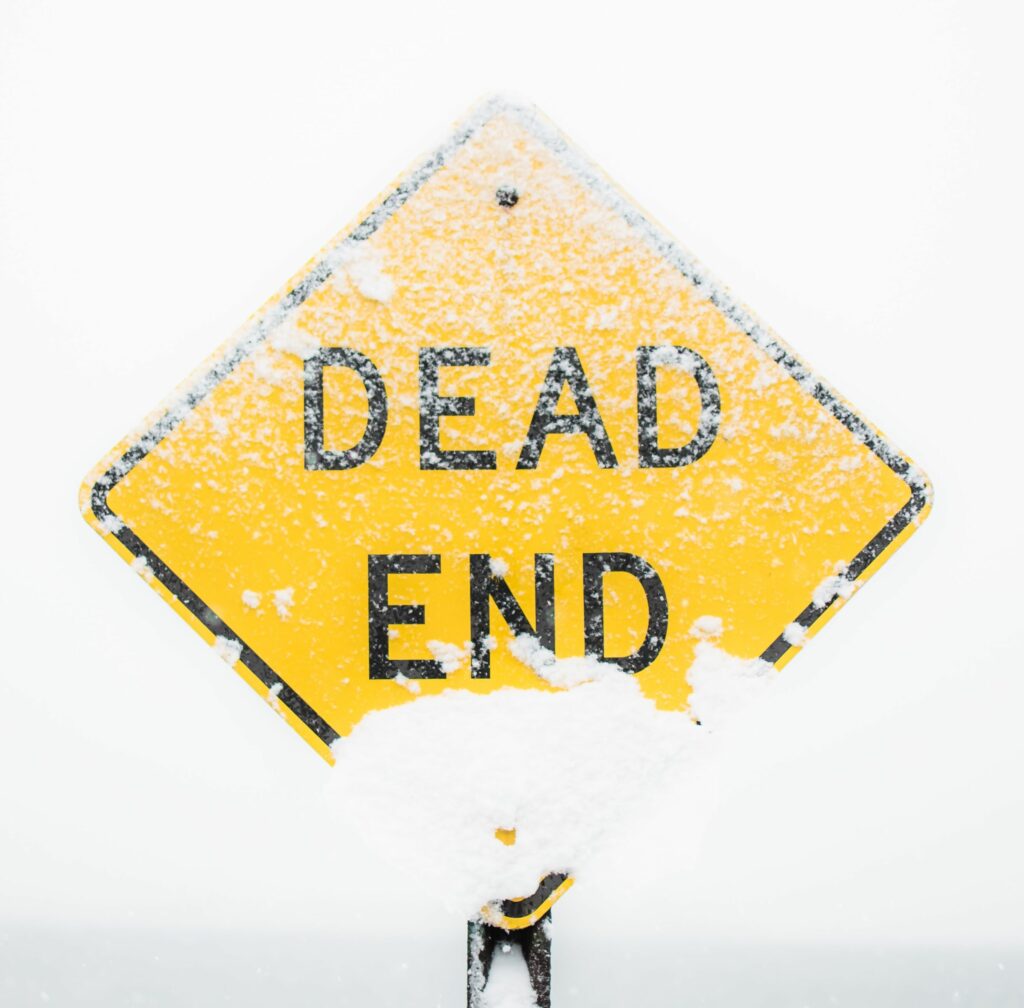The new normal: Great expectations


It was the beginning of March. The corona virus was wreaking havoc abroad, but here it seemed to be something only over-zealous HR policymakers were worrying about. Then, on the twelfth, we received the shock announcement that we would have to work from home until the end of the month. Three days later, the schools were closed for three weeks. Everyone I knew was counting down the days until we could get back to normal. Three weeks seemed like a long time.
On the seventh of April, a bombshell hit. During his press conference, the Dutch prime minister used two new phrases, ‘the new normal’ and ‘the 1.5m society’. My jaw dropped as my heart froze – surely it was impossible that this situation could become permanent? I could not believe in ‘the new normal’. Six months on, I’ve been forced to accept that many things I would have found bizarre back then, now indeed seem to have become normal. This series of blog posts will look at various aspects of the ‘new normal’ as I experience it in the Netherlands. This final post: expectations
I have certain expectations of how the government should behave during a crisis. They should consult a wide range of experts, carefully weigh up the pros and cons of the available options, and then choose what is best for the country as a whole. That choice having been made, they should clearly communicate the decision and their reasoning to the public, then do what is necessary to ensure cooperation. Basically, I expect the government to behave like an ideal parent, caring and listening but also decisive and in control, knowing exactly what is going on and what the right thing to do is.

On the 16th of March, the Dutch prime minister held a press conference, in which he explained his government’s approach to the corona crisis. He expressed understanding for the confusion and disbelief most of us were facing, and sympathy for the families hit by corona. He then laid out the measures that had been decided upon in consultation with medical experts. We would reduce contact by working from home, keeping a 1.5m distance and closing restaurants, thereby controlling the number of infections and avoiding overwhelming the hospitals. We would not, however, go into a full lockdown, as the virus would then simply reappear once we returned to normal life. Allowing a limited circulation would build up herd immunity, protecting us against the virus in the long run. He acknowledged the economic consequences and pledged to do what was necessary to support businesses.
For me, this speech ticked all the boxes. I felt that everyone’s needs were being considered, and that the chosen option was well thought-out. It still rankled that the schools had been closed against the explicit advice of the medical experts. But I felt reassured that we were now on the right course.
Since then, I have been bitterly disappointed by the government’s handling of the crisis, and I don’t think I’m the only one. Upon coming out of lockdown, we were assured that any resurgences of the virus would be swiftly detected by effective track-and-trace systems, and contained with local measures. The reality was that the corona app promised in the spring didn’t materialize until the autumn and that the capacity of track-and-trace was woefully inadequate, limited partly by a conflict of interest of some doctors on the scientific advisory committee, and by tracing capacity having actually been scaled down by local health authorities. Mayors also resisted implementing local measures, preferring to wait until national measures became necessary. The scientific basis on which decisions are made, the plurality of the committee offering scientific advice, and the transparency of the decision process itself have all been called into question. After assuring everyone that face masks only gave the illusion of safety, there followed a period of confusion in which there was an ‘urgent advice’ to wear them, and now they have been made compulsory in the Netherlands.

Frustration has grown about the apparent inconsistency of the rules, leading to the strong suspicion that, despite claims that decisions are based on science, other factors are at play, such as the money earned from professional football and the perceived importance of Schiphol airport to the economy. Why, instead of punishing individual businesses and persons who don’t follow the rules, has the entire hospitality sector been shut down, threatening many hard-working restaurant owners with bankruptcy? Could the reason be that it is less confrontational to check that restaurants are shut than to arrest large numbers of individuals for failing to keep a safe distance? Why is it permissible for someone living in the southern Netherlands to travel more than a hundred kilometres to Amsterdam, but not a few kilometres across the border to visit family in northern Belgium, even though the infection rate there is (at time of writing) less than half that of Amsterdam?
The general trend seems to be that a failure to keep to the rules is addressed by making the rules stricter, an act that obviously only punishes those who actually follow the rules, while letting those who break them continue doing what they want. Finally, the fact that politicians urge the population to work from home as much as possible and not to travel, while themselves continuing to meet in person and travel abroad, prompts accusations of ‘one rule for us and another for them’. This is heightened by incidents such as the wedding of justice minister Grapperhaus, where he shook hands and even hugged his elderly mother-in-law, or the prime minister Rutte saying that it had been a poor decision to allow the king to holiday in Greece at a time when the cabinet strongly advised against travel – in a statement issued from Brussels, where Rutte himself had travelled to attend an EU summit. Looking back on it, it is strange that we ever expected politicians to stop being politicians.

But, as citizens, we are not the only ones to be disappointed. The government had its own expectations of how the population would behave during this crisis. They expected us to accept the measures without asking any difficult questions, and obey them cheerfully. We would not moan and complain, but put teddy bears in our windows and show our support for the health services with flags and rainbows. Instead of worrying about our jobs, we would put our creativity to work and keep the economy going no matter what. Just as we expect the government to be the ideal parent, they expect us to be the ideal child, obedient and resourceful, unquestioning and grateful. Compared to this ideal, we have also fallen short. In response to impending restrictions, people held a party in The Hague, in the square right outside the parliament buildings. In the early summer, when it was lovely weather, people flocked to the beaches, despite repeated warnings. Anti-corona demonstrators promote ridiculous conspiracy theories and even resort to violence, making it very difficult to have a reasoned debate about the measures.
Our disappointment in each other pushes government and governed further apart. As trust is lost, cooperation steadily turns into confrontation. As one newspaper article put it, “the citizen becomes an unruly schoolchild, who pleads for an ever-stricter parent”. The writer continues: “This plea is justified. Because the coronavirus is not an individual question, it’s about the community. Be clearer, Government, dare to be strict and take responsibility for the community”. I find it significant that the writer pairs strictness with responsibility. As many parents have experienced, when your child is disobedient, a tempting reaction is to reassert control by becoming stricter. But, if your child does not trust that you are acting responsibly in their best interests, then their reaction is simply to redouble their efforts to evade your control.

The greatest expectation that a child has of their parent is the promise that it will all come out ok in the end, that there is light at the end of the tunnel. At the present time, this is what I miss the most. Experts seem almost to compete with each other to give the gloomiest prediction, echoing Bill Murray’s grumpy weatherman doomed to repeat the same day over and over again:
“I’ll give you a winter prediction: It’s gonna be cold, it’s gonna be grey, and it’s gonna last you for the rest of your life.”.
Bill Murray, “Groundhog Day”
The herd immunity approach laid out by Mark Rutte in his March speech has become a taboo subject, despite many scientists calling for it. Instead, we were told to hang on until a vaccine could be produced. Now, we are warned that the wait will be long (until 2022 for young and healthy people), that a vaccine may only be partially effective, that rich countries may try to hoard the vaccine for themselves, and that it could even all be for nothing if people can be reinfected. All these uncertainties raise the spectre of being kept under restrictions even after the long-awaited vaccine arrives. The hopes held out by the promises of good track-and-trace systems and corona apps have been dashed, as already mentioned, while the dream of large-scale testing as part of the solution also suffers from problems caused by the large number of false positives that even a pretty accurate test produces if used for large populations (The Guardian, NRC), and the difficulties in persuading those with positive tests but no symptoms to self-isolate.
Have we lost a way of living that we will never recover? Is this a rare event, not to happen again for another hundred years? Or is this a seismic shift brought on by the radical changes in how we live – global travel, denser populations, intensive food production? Are we like an athlete with a leg injury who will return to Olympic triumphs after a period of painful rehabilitation, or are we the athlete who is now paraplegic and must seek fulfillment in a totally different way of life? The Spanish flu, devastating at the time, was almost completely forgotten in later years, while AIDS led to a lasting change in how we approach sexual relationships, ending the innocent dream of free love for good.
I can imagine a future with a mix of homeworking and officeworking, where people who feel ill stay at home instead of heroically dragging themselves about their daily business, where we wash our hands more often and take regular corona tests. What I can’t imagine – what I would find unbearable – is a world in which the threat of corona continues to derail the most basic parts of our lives. Where I won’t be able to hug my father without a chilling voice whispering that my hug could lead to his death, if I am unknowingly infected. Where those of us with the good fortune to be able to work from home exist in safe but lonely boredom while the rest of the population must constantly weigh up the choice between health and financial security. Where the simple pleasure of being with others is a privilege we can no longer afford.
Faced with this prospect, I can’t help wondering if there aren’t more alternatives. Could we defend ourselves against such viruses in the long term by addressing the infrastructure of our lives in other ways, reducing poverty, improving living and working conditions, altering our means of food production? Or is there another, less pleasant alternative, where we live our lives in the way we want and accept an increase in mortality as the toll? In the days before safety rules, hygiene and vaccines, the risk of death was far more commonplace – yet people still got on with their lives.

There is not one scenario for the future in which I dare to put my trust. So, paradoxically, I must derive hope from my disappointed expectations. Our leaders don’t know exactly what is going on, or what should be done. Nor do any of the scientific experts, despite valiant – and valuable – efforts. They have regularly got it wrong. It follows, therefore, that their gloomy predictions may also be wrong. Or that there is indeed another solution that we haven’t thought of yet. There was never a vaccine developed for either the Spanish flu or HIV, yet no one ever dies from the Spanish flu anymore, and people with HIV have a near-normal life expectancy, if they receive the right treatment. Back when those pandemics were at their peak, who would have dared predict such a good outcome? I must continue to hope that ‘the new normal’ will one day be a curiosity, a tale to tell to entertain our grandchildren.
Corona is not going away for the time being. But life is more than just corona, so I am concluding this series of posts for now. We had great expectations of the perfect solution for corona, and that is unsurprising, given that perfection has become our goal in so many parts of our lives. My next series of posts will examine this pursuit of an impossible ideal.
